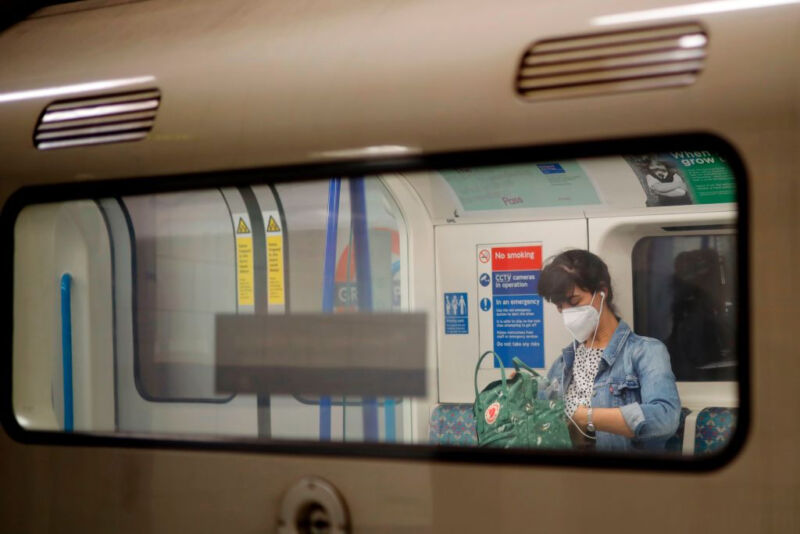Face masks don’t even have to work especially well to be effective

Enlarge / Commuters wear face masks as they travel on the London Underground on June 12, 2020 as lockdown measures are eased during the novel coronavirus COVID-19 pandemic. (credit: TOLGA AKMEN/AFP)
Advice on whether or not to use face masks to limit the spread of the pandemic has varied from country to country, even differing by location within countries. These policies have had to balance whether there were sufficient supplies for medical personnel to divert some to the general public. And the whole issue was decided without a clear idea of whether face masks were actually effective against SARS-CoV-2.
But there has been reason to think masks would at least be somewhat effective, based on studies of the spread of droplets of material we expel while coughing or sneezing. And a recent analysis suggested a large group of individual studies collectively pointed to their effectiveness. But that analysis left a large degree of uncertainty about how effective they'd be at the population level and how face mask use would interact with other policy decisions.
The situation left us needing population-level modeling, which a group of UK scientists has now provided. The group's model indicates that face masks don't have to be especially effective to slow the spread of SARS-CoV-2-as long as they limit the spread of the virus from infected people, they can limit the pandemic even if they make mask wearers more susceptible to infection. But to really control the pandemic, masks will have to be combined with a lockdown if we want to see the total infected population shrink.
Read 14 remaining paragraphs | Comments